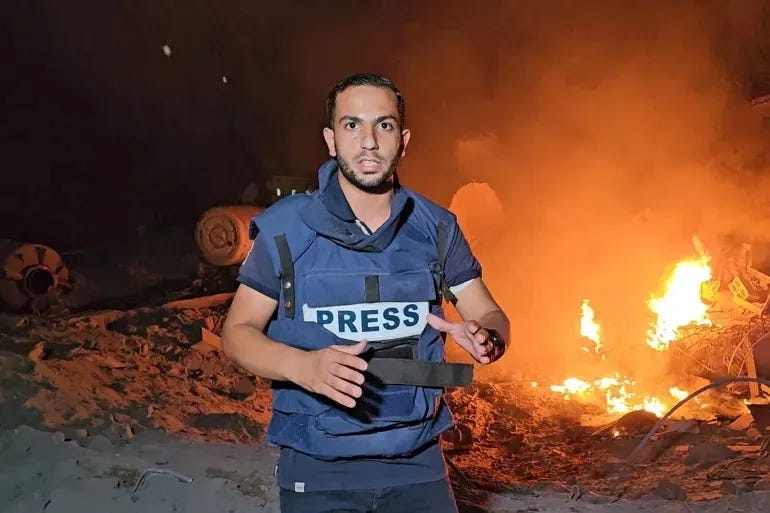Israel Has Murdered Al Jazeera's Last Journalists in Gaza
Israel's war on the press continued, in one of the darkest days for journalism in a century.
On August 10, 2025, the world witnessed one of the most blatant and deliberate assaults on journalism in modern history. In a single Israeli airstrike outside Al Shifa Hospital in Gaza City, the last remaining members of Al Jazeera’s Gaza bureau were killed: Anas al-Sharif, Mohammed Qreiqeh, Ibrahim Zaher, Moamen Alaywa, and Moha…
Keep reading with a 7-day free trial
Subscribe to The Crustian Daily to keep reading this post and get 7 days of free access to the full post archives.



